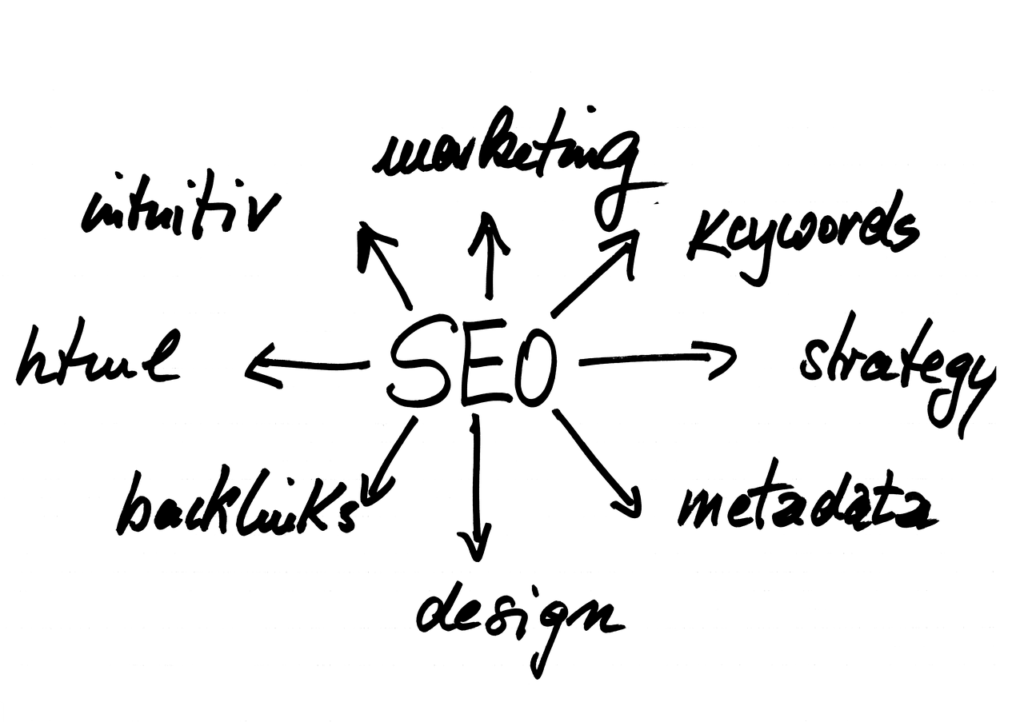Are you a beginner in the world of e-commerce and looking to improve your online presence? Look no further! In this ultimate beginner’s guide to e-commerce SEO, we will take you on a journey through the ins and outs of optimizing your website for search engines. From understanding keywords and meta tags to mastering product descriptions and site structure, we’ve got you covered. Get ready to boost your visibility, increase organic traffic, and ultimately grow your online business. Let’s dive in!

Understanding E-commerce SEO
E-commerce SEO, or search engine optimization, is the process of optimizing an online store’s website and content to increase its visibility and ranking in search engine results pages (SERPs). By implementing various strategies and techniques, e-commerce websites can improve their organic search traffic and attract more potential customers.
What is E-commerce SEO?
E-commerce SEO is a subset of traditional SEO, specifically tailored to the unique needs and challenges of online stores. Unlike informational websites, e-commerce websites focus on selling products or services. Therefore, the primary goal of e-commerce SEO is to drive qualified traffic to the website and convert visitors into customers.

Why is E-commerce SEO important?
Implementing effective e-commerce SEO strategies is crucial for the success of online stores. Here are a few reasons why e-commerce SEO is important:
-
Increased Visibility: With millions of online stores competing for customers’ attention, having high visibility in search engine results is essential. E-commerce SEO helps improve your website’s rankings, making it more likely to be seen by potential customers.
-
Targeted Traffic: By optimizing your website for relevant keywords and search terms, you attract users who are actively looking for products or services you offer. This targeted traffic increases the likelihood of conversions and sales.
-
Cost-effective Marketing: Compared to paid advertising, e-commerce SEO can be a cost-effective marketing strategy in the long run. Once your website ranks well in organic search results, you can attract consistent traffic without ongoing advertising expenses.
-
Brand Authority: Ranking high in search engine results signals to users that your website is trustworthy and reputable. E-commerce SEO helps build brand authority and credibility, increasing the likelihood of conversions and customer loyalty.

How does E-commerce SEO work?
E-commerce SEO involves various strategies and techniques to optimize an online store’s website for search engines. Here are some key components of e-commerce SEO:
Keyword Research for E-commerce
Keyword research is the foundation of e-commerce SEO. By identifying the right keywords and search terms, you can optimize your website’s content to align with users’ search intent. This involves understanding your target audience, conducting competitor analysis, and using keyword research tools to discover relevant keywords with high search volume and low competition.
On-Page Optimization for E-commerce
On-page optimization involves optimizing individual web pages to improve their visibility in search engine results. For e-commerce websites, this includes optimizing product titles and descriptions with relevant keywords, creating unique and compelling content, and optimizing URL structures and site navigation for better user experience and search engine crawling.
Technical SEO for E-commerce
Technical SEO focuses on optimizing the technical aspects of a website to improve its search engine performance. This includes optimizing website speed and performance, implementing structured data to enhance search visibility, and ensuring proper indexing and crawling of the website by search engines.
Link Building for E-commerce
Link building plays a crucial role in e-commerce SEO by improving your website’s authority and credibility. This involves acquiring high-quality backlinks from relevant and authoritative websites in your industry. Guest posting, outreach strategies, and building partnerships with influencers and other online stores are effective ways to build a strong backlink profile for your e-commerce website.
User Experience and Conversion Optimization
Creating a seamless user experience is essential for e-commerce websites. Optimizing website usability, enhancing user experience through intuitive navigation and responsive design, and optimizing the checkout process and forms help improve conversion rates and reduce bounce rates.
Local SEO for E-commerce
For e-commerce websites targeting a specific geographic area, local SEO is crucial. This involves targeting local keywords in your content, optimizing your Google My Business listing, and leveraging online directories to increase your local visibility.
Mobile Optimization for E-commerce
With the increasing use of mobile devices for online shopping, mobile optimization is essential for e-commerce websites. Implementing responsive design to ensure your website is mobile-friendly, optimizing mobile site speed, and providing a seamless mobile browsing experience help attract and retain mobile users.
Content Marketing for E-commerce
Creating valuable and shareable content is an effective strategy for e-commerce SEO. By producing informative blog posts, product guides, and engaging videos, you can attract and engage your target audience. Leveraging social media for content promotion helps increase your website’s visibility and drives traffic.
Measuring and Analyzing E-commerce SEO
Tracking key metrics is essential to measure the success of your e-commerce SEO efforts. Using Google Analytics, you can monitor organic search traffic, conversion rates, bounce rates, and other important metrics. Additionally, there are various tools available for monitoring and analyzing e-commerce SEO performance, providing insights and recommendations for further optimization.
In conclusion, e-commerce SEO plays a vital role in driving organic traffic, improving visibility, and increasing conversions for online stores. By implementing effective strategies and techniques, e-commerce websites can gain a competitive edge in the online marketplace and achieve long-term success.

